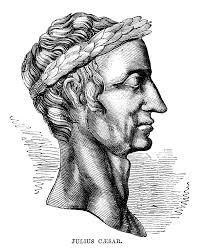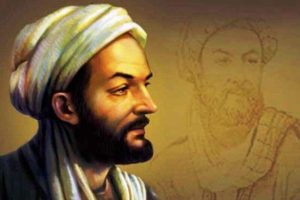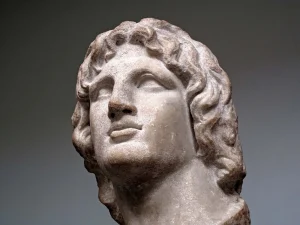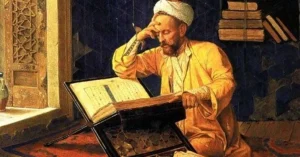
Julius Caesar
Legacy of Caesar’s Assassination
Political Turmoil: Caesar’s assassination, orchestrated by a group of senators, was meant to restore the Roman Republic. Instead, it led to even more chaos and civil wars, ultimately culminating in the establishment of the Roman Empire under Augustus. The event also solidified Caesar’s image as a martyr and a symbol of political struggle.
Read the biography of Ghulam Azam >>>
Philosophical Legacy: Caesar’s life and death have been interpreted through various philosophical lenses. His actions raised important questions about power, governance, and loyalty. His story has inspired countless discussions on the tension between individual ambition and the welfare of the state.
Enduring Influence
In the Modern World: The legacy of Julius Caesar has influenced many political leaders, from Napoleon Bonaparte to modern-day figures who model themselves on the Roman idea of imperial authority. His name continues to be associated with leadership and military prowess.
Cultural Impact: Caesar’s life and death have been immortalized in countless works of literature, most notably in William Shakespeare’s play Julius Caesar. His story remains one of the most iconic in Western history, symbolizing both the heights of power and the dangers of political overreach.
Notable and inspiring stories of Julius Caesar’s life
Julius Caesar, one of the most influential figures in history, led an extraordinary life full of remarkable achievements, challenges, and inspiring moments. Here are some notable and inspiring stories from his life:
1. Rise from Humble Beginnings
Julius Caesar was born into the Julian clan, a patrician family, but his family was not particularly wealthy or influential at the time of his birth. Despite this, Caesar’s early life was marked by ambition and an undeniable desire for power. He rose through the ranks of Roman society by using his charisma, political skill, and military prowess, proving that one’s birth did not determine their success. His rise exemplifies the potential for individuals to shape their own destiny through hard work, intelligence, and determination.
2. Military Genius and Conquest of Gaul
One of Caesar’s most inspiring feats was his conquest of Gaul (modern-day France and Belgium), a campaign that lasted from 58 BCE to 50 BCE. Against formidable tribes, Caesar demonstrated brilliant military tactics and leadership. His decision to write Commentarii de Bello Gallico (“Commentaries on the Gallic War”) further immortalized his genius, offering an unparalleled account of military strategy and the significance of his campaign.
In 52 BCE, the Battle of Alesia became one of the highlights of his career. Despite being outnumbered, Caesar’s forces laid siege to the fortified town of Alesia, forcing the Gallic leader Vercingetorix to surrender. This victory solidified his reputation as one of Rome’s greatest generals and showcased his courage, foresight, and unyielding willpower.
3. Crossing the Rubicon
One of the most famous moments in history occurred in 49 BCE when Caesar made the fateful decision to cross the Rubicon River with his army. By doing so, he was effectively declaring war against the Roman Senate and his rival Pompey. The phrase “The die is cast” (Alea iacta est) is attributed to him at this moment, symbolizing his commitment to achieving his goals, no matter the cost.
The crossing of the Rubicon marks a critical turning point, where Caesar took a bold risk to secure control of Rome, a move that ultimately changed the course of history. His defiance of the Senate’s authority reflects the idea that decisive action, even in the face of immense risk, can sometimes be necessary to achieve greatness.
4. Dictatorship and Reforms
After defeating Pompey and his supporters in the civil war, Caesar became the dictator of Rome. He used his position to enact significant reforms, many of which reflected his vision of a more fair and just society. For instance, he reformed the calendar (creating the Julian calendar, which is still in use today), redistributed land to veterans, and extended Roman citizenship to many people in the provinces, granting them greater legal rights.
Caesar’s reforms show his commitment to improving Roman society, and his leadership during this time demonstrated his vision for the future of the empire. He wasn’t just a military leader; he was a reformer who sought to make Rome a better place for all its citizens.
5. Generosity and Political Savvy
Caesar was not just a ruthless conqueror; he was also a man of incredible political savvy. He knew how to win the support of the people. His generosity, including hosting grand games and distributing wealth to the public, earned him a great deal of popularity. He had a deep understanding of Roman politics and used his alliances, particularly with Pompey and Crassus in the First Triumvirate, to strengthen his position.
His ability to navigate the complex political landscape of Rome and win over the public is a testament to his understanding of human nature and his capacity for strategic thinking.
6. The Assassination
Caesar’s life ended tragically on the Ides of March (March 15) in 44 BCE, when he was assassinated by a group of senators who feared his growing power. However, his death did not mark the end of his legacy. In fact, his assassination sparked a series of events that led to the rise of the Roman Empire, with his adopted heir, Octavian (later Augustus), eventually becoming the first Roman Emperor.
Despite his tragic end, Caesar’s life serves as a reminder of the fragility of power, and how even the greatest figures in history can fall. However, his vision, courage, and strategic brilliance continue to inspire leaders and thinkers to this day.
Julius Caesar’s favorite quotes
Julius Caesar, the Roman general and statesman, is attributed with several famous quotes. Here are a few of his most well-known:
- “Veni, Vidi, Vici”
Translation: “I came, I saw, I conquered.”
This is one of Caesar’s most famous sayings, which he reportedly used in a letter to the Roman Senate to describe his swift and decisive victory in the Battle of Zela. - “Et tu, Brute?”
Translation: “And you, Brutus?”
These are the famous last words attributed to Caesar when he saw his friend and confidant, Brutus, among his assassins during the Ides of March. - “Alea iacta est”
Translation: “The die is cast.”
Caesar is said to have uttered this phrase as he crossed the Rubicon River with his army in 49 BC, an action that led to the Roman Civil War. It symbolizes a point of no return. - “Experience is the teacher of all things.”
This reflects Caesar’s belief in the value of practical knowledge and firsthand experience. - “Cowards die many times before their deaths; The valiant never taste of death but once.”
This line is from Shakespeare’s play “Julius Caesar,” reflecting the stoic philosophy that Caesar was often associated with, focusing on courage and fearlessness.







